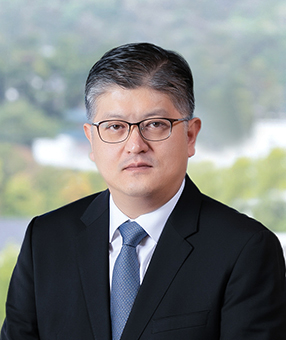The Ministry of Trade, Industry and Energy (the “MOTIE”) and the Ministry of Land, Infrastructure and Transport (the “MOLIT”) jointly announced their “Plan to Reform the Stringent Regulations on Industrial Complexes” (the “Reform Plan”) on August 24, 2023, which aims to improve the 30-year old industrial complex management system. Subsequently, two partial amendments to the Industrial Cluster Development and Factory Establishment Act (the “Industrial Cluster Act”) (collectively, the “Proposed Amendments”) were proposed at the National Assembly. Key points concerning real estate investment in the Reform Plan are: (i) relaxing stringent restrictions on the types of qualified businesses that can be carried out in industrial complexes, (ii) allowing securitization of factories and other assets in industrial complexes located outside of the Seoul metropolitan area (the “Non-Seoul Metropolitan Area”), and (iii) allowing the leasing of adjacent vacant land for factory expansion.
Under the current regulatory landscape, businesses permitted in industrial complexes face significant challenges in meeting new investment demands. This is primarily due to the considerable time and costs associated with amending the terms and conditions outlined in the development plans and master management plans for industrial complexes that were put in place during the development and sale of the industrial complex sites. Furthermore, restrictions on the disposal of factories and factory sites within the industrial complex limit the occupants’ ability to secure funds for additional investments. Additionally, the inability to lease vacant land alone limits operational flexibility.
The Reform Plan and the Proposed Amendments offer promising solutions. Under the new framework, the industrial management agency will stimulate new investment by reevaluating the types of qualified businesses that can be carried out at and occupy industrial complexes and by expanding the list of such qualified businesses every five years. These measures would enable the rapid adjustment of the types of qualified businesses that can occupy industrial complexes in response to changes in the industrial technology landscape.
Moreover, the Reform Plan and Proposed Amendments will open the door to asset-backed securitization through the sale and leaseback structure for industrial complexes located in the Non-Seoul Metropolitan Area, and this change will likely facilitate the fundraising of businesses in industrial complexes for future expansion and R&D initiatives.
Finally, as part of these reforms, occupants of the industrial complexes will also be allowed to lease out vacant land they own within the industrial complex site to an adjacent occupant at the time of its factory expansion, which will promote greater flexibility in business operations.
Below are the details of the Reform Plan and Proposed Amendments:
|
1. |
Relaxation of Occupant Business Restrictions |
-
Under the current regulations, industrial complexes face challenges in adapting to new investment demands as a result of the following: (i) the types of businesses permitted in the industrial complexes, as established and confirmed by the master management plan at the establishment of the relevant industrial complexes, would remain unchanged for an extended period, and (ii) revising the master management plan to meet the evolving market demands could result in a substantial amount of time and costs.
-
Under the Reform Plan and Proposed Amendments, the industrial management agency will be required to review the types of qualified businesses every five years. The Korea Industrial Complex Corporation will establish a review body to facilitate the integration of new industries. This would make it easier for businesses in new industries to carry out their businesses and occupy the industrial complexes, thereby attracting new industries to the industrial complexes.
|
2. |
Asset-Backed Securitization via Sale and Leaseback of Factories in the Non-Seoul Metropolitan Area |
-
Current regulations impose restrictions on the disposal of factories and factory sites within industrial complexes for five years after an establishment of a factory on the industrial complex site. Even after the expiration of the sale-restriction period, the industrial complex sites and factories established thereon can only be sold to entities intending to operate the factories for captive use. This creates challenges for the existing occupant companies to raise funds using the real properties they own within the industrial complexes.
-
Under the Reform Plan and Proposed Amendments, occupants of the industrial complexes located in the Non-Seoul Metropolitan Area will have the option to utilize securitization through the sale and leaseback of their industrial sites and factories, making it easier for them to raise funds for expansion and R&D.
|
3. |
Allowing Leasing of Vacant Land at the Time of Factory Expansion |
-
Current regulations allow the leasing of both a factory and its underlying factory site together but prohibit the separate leasing of vacant land (i.e., land without any structure constructed thereon) alone.
-
The Reform Plan and Proposed Amendments will permit an occupant owning an industrial site with vacant land to lease that portion of its industrial complex site to an adjacent occupant within the same industrial complex. This regulatory shift would enable the adjacent occupant to construct manufacturing facilities or ancillary facilities on the vacant land in connection with its own factory, which is expected to enhance operational flexibility for the occupants of industrial complexes.
The existing regulatory framework for industrial complexes imposes limitations on occupancy by new businesses, investments into new industries, factory expansion, fund raising for R&D activities and flexible business operations of the industrial complex occupants.
If the Proposed Amendments are enacted, they will open the doors for new industry players to join industrial complexes. Additionally, they could empower the industrial complex occupants to securitize their assets and enhance business flexibility by leasing out vacant land for factory use. Companies are advised to follow the National Assembly’s decision on the Proposed Amendments at its plenary session and the detailed terms of the amendments and guidelines to be adopted by the Enforcement Decree and Enforcement Rules of the Industrial Cluster Act.
Related Topics
#Industrial Complex Regulations #Sale & Leaseback #Real Estate #2023 Issue 4 #Newsletter










